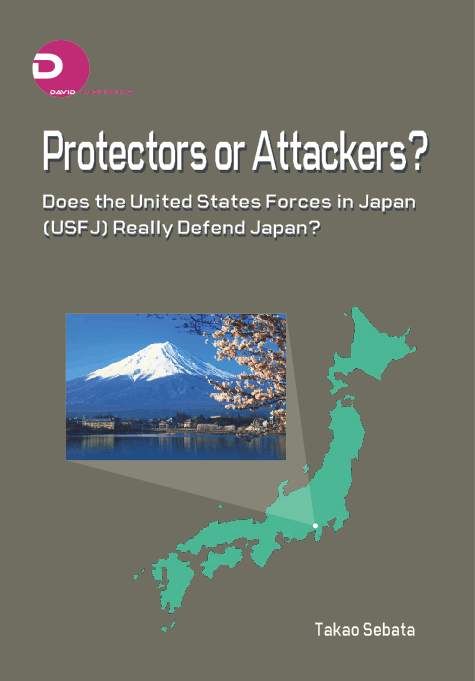Protectors or Attackers? Does the United States Forces in Japan (USFJ) Really Defend Japan?
0pp 0 2016
- ISBN: (Ebook) 1-934502-21-9 USD $65.00
- ISBN: ( Print) 1-934502-21-9 USD $80.00
The United States Forces has been stationed in Japan over the last 70 years since August 1945 when the United States occupied Japan. Most Japanese and Americans think that the United States Forces stationed in Japan (USFJ) defends Japan. However, in reality, Japan’s defense is in the hands of Japan’s Self-Defense Forces (SDF), not those of USFJ. During the Cold War, both the Japanese and the United States Governments justified keeping USFJ as deterrence against a possible Soviet invasion of Japan. Since 1991, however, the Soviet Union is gone and there is no imminent threat to Japan although it is important to examine if there really existed a Soviet threat during the Cold War. Nevertheless, Japan still hosts a large number of USFJ, somewhere between 30,000 and 35,000 troops, the second largest number only next to Germany in the world, and its bases. Moreover, the Japanese Government pays a huge amount of money to the United States as the Host Nation Support or Omoiyari Yosan whose amount reaches between US$140,000 and US$160,000 per US soldier every year. In this way, Japan has been supporting the United States in spite of the fact that the Japanese Government suffers from a huge budget deficit and Japan’s economy has been in recession for almost 25 years.
In return, what have the Japanese people gotten from keeping USFJ over the last 70 years? The study will show the following points. In addition to environmental destruction, there are more than 200,000 cases of crimes and accidents in Japan caused by USFJ personnel, who are soldiers, civilian employees, and their family members, between 1952 and 2010. On average, there are 10 cases per day. More than 80% of those USFJ personnel who committed crimes or caused accidents in Japan have not been indicted at either a Japanese court or an American military court. In other words, USFJ personnel enjoy extraterritoriality in Japan and receive generous Host Nation Support, which covers more than 70% of the cost to keep USFJ and its bases in Japan including utilities for the family members. The United States says that USFJ plays a role of deterrence against a potential enemy and protects Japan, but the above statistics show that USFJ personnel in fact hurt the Japanese people.
Therefore, the study will ask whether USFJ really defends Japan. Is USFJ a protector or an attacker? Which country poses a threat to the Japanese people, China or the United States? Do the Japanese people really need USFJ and its bases? Do the Japanese people allow USFJ to stay in Japan for another 50 or 100 years while USFJ personnel enjoy extraterritoriality and Host Nation Support? How long should the people in Okinawa continue to suffer from crimes, accidents, and environmental destruction? They have been suffering for 70 years. For the people in Okinawa, enough is enough. They want other Japanese people in the mainland to share the burden and cost of keeping USFJ and its bases.
However, the Japanese Government and the United States Government continue to ignore the will of the people in Okinawa. Both governments agree that there will be a new Marine Corps airport in Henoko, Nago City in Okinawa to replace the Futenma United States Marine Corps Air Base in Ginowan City in spite of the fact that almost all people in Okinawa are opposed to such a construction. In December 2014, there were general elections in Japan. All four candidates of the Liberal Democratic Party (LDP) in the Okinawa districts lost their seats while their party won landslide victory having 291 out of 475 seats in the House of Representatives.1 This result indicates that the people in Okinawa oppose the construction of a new military airport for USFJ in Henoko. However, the construction continues to take place.
After Introduction, Chapter 1 discusses the essence of Treaty of Mutual Cooperation and Security between Japan and the United States of America (hereafter referred to as the Security Treaty) and USFJ. Then, Chapters 2 and 3 deal with the importance of the Security Treaty and pros and cons for keeping USFJ. Chapter 4 focuses on modern concession and extraterritoriality. Chapters 5 and 6 look into the Host Nation Support and examine whether Japan can get economic benefits from hosting USFJ. Chapters 7, 8, and 9 focus on the relations among the Yukio Hatoyama Administration, the bureaucrats, and USFJ. They also pay attention to the Futenma United States Marine Corps Air Base and a question of whether Japan is an American protectorate. Chapters 10 and 11 take up threats to Japan in East Asia and deterrence of USFJ. They discuss the Chinese naval power in relation to the Senkaku (Diaoyu) Islands and deployment of Osprey aircraft. Chapter 12 discusses Japan’s defense cooperation with USFJ and Japan’s dilemma. Chapter 13 talks about the right to collective self-defense and USFJ. In conclusion, I argue that Japan should abrogate the Security Treaty and seek a neutral and demilitarized Japan.
Many Japanese and Americans think that it is almost impossible for Japan to choose a neutral and demilitarized policy given the fact that China is increasing her military might and becomes aggressive over the territorial issues in recent years. However, I would argue that the Japanese people could defend their own country with the Coast Guard and the police forces if Japan could establish diplomatic relations with North Korea, improve her relations with China, and sign a peace treaty with Russia.
